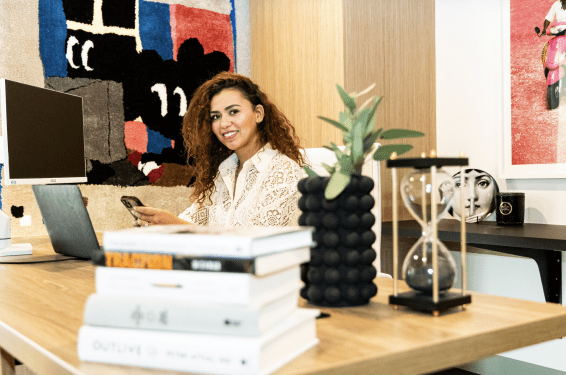Iman Clark, CEO of Prickly Pear Health, had an epiphany around nine years ago that eventually led her to TechCrunch’s Startup Battlefield at TechCrunch Disrupt 2025. After moving from Tunisia to the U.S. for graduate school, she joined a company creating gamified experiences for people with neurodegenerative conditions like dementia. This involved providing tablets or computers for patients to play games while doctors collected data on their risk of falling and overall range of motion.
She realized that most people aged seventy-five and older have two to three chronic conditions, and no matter what they did, it would always be challenging. Upon returning to the research, she discovered that about seventy percent of the Alzheimer’s population are women. Digging deeper, she found that women were twice as likely to be diagnosed with depression and anxiety, and three to four times more likely to be diagnosed with migraines. That is when she realized we are not really solving for women’s biology, and that is costing us lives and dollars.
So she created Prickly Pear Health, which provides medical support for women’s brain health. It is a voice-first, AI-powered companion that helps women in their thirties to fifties navigate the hormonal changes that affect brain health. The product lets people record quick reflections throughout the day using their voice. Prickly Pear’s AI technology then analyzes their language and context to track any cognitive changes.
The company will show its tech at TechCrunch Disrupt, which runs from October 27 to 29 in San Francisco. The product also pulls in sleep data, heart rate activity, and other metrics from trackers like Apple Health, Oura, and Garmin to help offer personalized insights on how users can take better care of their health.
Clark stated there is a collective agreement that women’s health is a space ripe for innovation, and that women want to be founders, want to be top voices, and are tired of being in the back seats of their own lives. Clark officially launched a free version of her product in May and is gearing up to launch the premium offering in October, coinciding with Mental Health Awareness Month and Menopause Awareness Month.
She started doing focus groups at Arizona State University and found that women in their late thirties to early fifties were reporting a lot of brain fog and mental fatigue. However, it often took them until their sixties to realize it had to do with hormonal fluctuations, menopause, or even the onset of something deeper. It was here that Clark realized she wanted to focus on this age range.
She said that women in their thirties to fifties are often dismissed or misdiagnosed when symptoms like brain fog, mood shifts, or irregular cycles first appear. She added that these midlife years are critical to brain health, but traditional care is failing to connect the dots. The company is addressing that gap by helping women recognize and act on early signals before they escalate into more serious health challenges later.
Arizona is also where the inspiration for the company’s name originated. She became fascinated with the cacti, how they stand despite the heat and produce healthy fruit. That is when Prickly Pear came to life because that is the fruit that grows on the cactus tree, and it was an inspiration of thriving in harsh conditions and joyful resilience.
She considers competitors in her field to be existing menopause apps, which she describes as more like symptom trackers. She believes it is important to understand symptoms, but feels those approaches are reactive, whereas her company is there to be able to detect things early.
She raised a three hundred and fifty thousand dollar pre-seed round and said it was really hard, especially as a woman of color. She stated they had to be so good that they could not be ignored. She sought to build relationships with investors before starting her pre-seed, which she said really helped when it came time for the ask. She mentioned a popular saying, that if you ask for advice you get business, and if you ask for business you get advice sometimes.
Some advice she received was to apply for Startup Battlefield, with friends telling her to be loud and proud about being part of the latest startups to pitch during the competition. She said Disrupt is the ultimate stage for new ideas. She is excited to spotlight women’s brain health, learn from other founders, and connect with investors and partners who believe, like she does, that women’s health innovation is not niche, but the future of healthcare.

